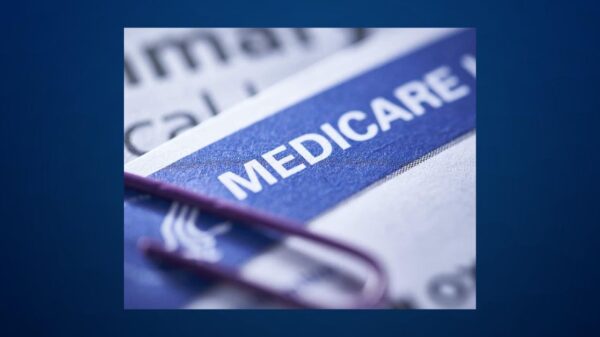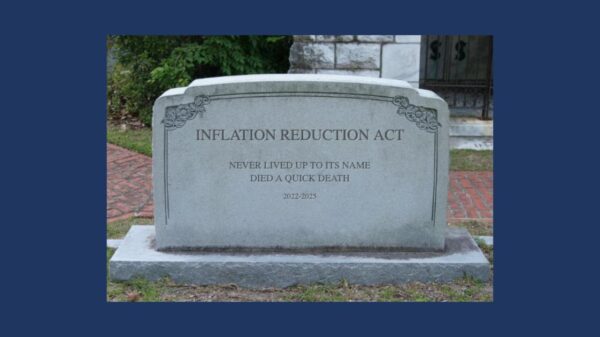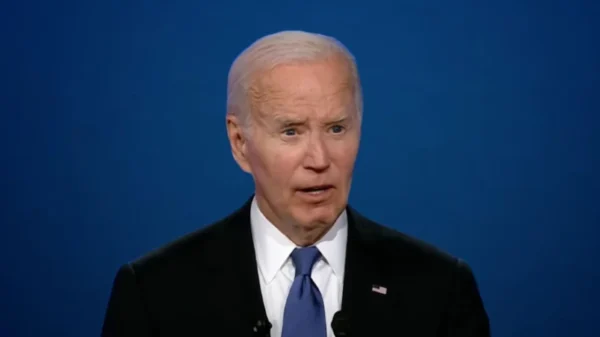U.S. Rep. John Rutherford, R-Fla., is leading Republicans on Capitol Hill in asking the Biden administration if the White House’s student loan forgiveness plan will hurt the military’s recruitment efforts.
Rutherford teamed up with U.S. Rep. Pat Fallon, R-Texas, to lead 18 other House Republicans in sending a letter on the matter to President Joe Biden and U.S. Defense Sec. Lloyd Auston.
“Providing servicemembers the opportunity to further their education at little to no cost is one of the primary ways we thank those who have served their nation,” said Rutherford. “President Biden’s student loan forgiveness plan not only delegitimizes the efforts of hardworking Americans to pay off their loans, it undermines the effectiveness of this education benefit as a recruiting tool for our military at a time when recruitment levels are already dangerously low. I am proud to join my colleagues in demanding accountability for the harm these handouts will cause across all branches of our armed forces.”
“Military recruitment is hard enough. With Joe Biden’s recent announcement to cancel up to $20,000 in student loan debt, I fear what may come next. The Armed Services have often used educational benefits as a top incentive in the recruitment process, and now that is gone,” said Fallon. “We deserve answers. It is imperative that we understand why this decision was made, who was consulted in the process, and what effects this will have on all branches of our military. I want to thank all my colleagues for joining me in this effort. We look forward to the Administration’s response.”
U.S. Reps. Byron Donalds and Michael Waltz, R-Fla., were among the signers. The letter is below.
Dear President Biden,
We write you to share our concerns about the unintended consequences of your decision to cancel up to $20,000 of student loan debt per borrower. We are particularly concerned about the negative impact this will surely have on our nation’s military and their ability to recruit and retain top talent.
As you know, some of the most successful recruiting incentives for the military are the GI Bill and student loan forgiveness programs. The idea that the military will pay for schooling during or after completion of a service obligation is a driving factor in many individuals’ decision to join one of the services. A recent estimate showed that as many as 178,000 servicemembers were eligible for some type of forgiveness.
By forgiving such a wide swath of loans for borrowers, you are removing any leverage the Department of Defense maintained as one of the fastest and easiest ways to pay for higher education. We recognize the loan forgiveness programs have issues of their own, but this remains a top recruiting incentive.
Currently, a mere 23 percent of the population is eligible to serve in the military. Even fewer of those have a propensity to serve. At the end of the month, the Army had only reached 66 percent of its recruiting goal for the year. The Navy, only 89 percent. It is no secret that each of the services continues to battle hardships in recruiting and now these problems will be exacerbated by removing the uniqueness of this benefit.
As the services try to adopt unique approaches to tackle their recruiting challenges, including historic bonuses, it feels like their legs are being cut out from underneath them. With this in mind, we ask for you to provide us answers to the following questions:
1. Was the effect on military service considered in the development of the recent student loan forgiveness decision?
2. What is the administration’s plan to develop incentives to augment the loss of those who might join the military to help pay off student loans?
3. What improvements are being made to ensure timely payments to those currently enrolled in the Public Service Loan Forgiveness programs for both active duty and reserve components?
Thank you for your attention to this matter.


















